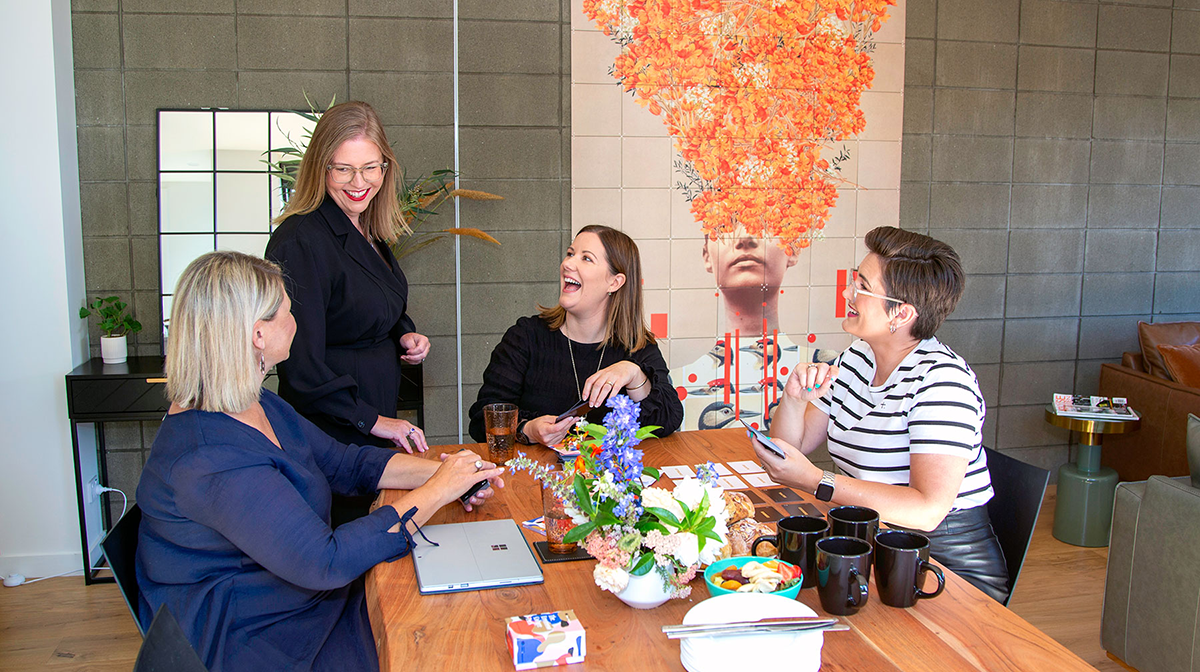We live in rural Hawke’s Bay, just outside Napier, not far from both Rissington and Eskdale, 2 of the areas hit hardest. I write this on Day 21 post Cyclone Gabrielle. Our community is still cut off and without power as access to us is tricky due to undulating terrain and infrastructure damage.
Cyclone Gabrielle hit us fast and hard on the night of Monday 13th February. Once we were able to go outside and assess the damage at daylight. I would describe what we saw as ‘biblical’ in proportion and I have heard the term ‘Armageddon’ used frequently since within our community.
Some properties were under water and there was 2m of mud on a long stretch of road outside our house. Big pieces of the road had gone as culverts were full of silt and debris. We had no cell reception, internet or power and had no way of knowing what was happening in the outside world, other than via a satellite phone that we could send text messages out on. What followed in days to come was quite incredible.
Those who could get out of their property checked in on neighbours. The most senior member of our community (age 88) drove as far as he could once the rain settled to invited neighbours to a community meeting at his home that afternoon. 70% of our cut-off community were represented at that meeting. Many had never met each other prior to this.
The meeting was chaired by our neighbour who is in the NZ Police. We made a list of all present, as well as others that were accounted for. This was reported to Civil Defence immediately.
The initial meeting was used to introduce people, identify skills and experience in the community, and to identify key roles moving forwards. This was kept at a high level to start with. The diversity of skills were astounding, and this diversity has proven to be extremely helpful in this unprecedented situation.
We discovered that we have people that operate diggers and heavy machinery, those that fix things, animal experts, mechanics, administrators, people who can coach, fencers, teachers, builders, farmers, someone with civil defence experience and the list goes on. We even discovered that we have a yoga instructor and a massage therapist!
The initial meeting brought this little community together and has continued to go from strength to strength. We voted a co-ordinating leader in who has good local knowledge and experience in leadership roles. There are a few simple unwritten rules;
- Egos are thrown out the window.
- We have a central voice and co-ordinator (our community leader) who openly admits that they do not have all the answers.
- Our input is always invited.
- Our leader is skilled at focusing on the desired destination and involving the rest of the team to map out the journey.
- Everyone has a voice.
- All ideas are encouraged and nothing is a silly idea.
- Everyone has a part to play in moving forward towards a desirable outcome.
- Every team member is made to feel that they add value.
The power of this team is quite incredible, and watching our team evolve over the past weeks has been incredibly inspiring.
It has seemed simple, and the key thing for our team has been that egos and desire to control have been left at the door.
4 weeks later…
At the time of finalising the newsletter (4 weeks post cyclone), the community is still cut off, some have power returned while others do not, some can work, others cannot. They have this week got a footbridge to get across the river so that supplies can be delivered to the river’s edge or somehow get a car from there to get to town.
They have created their own track to exit out the other end of the road in a four-wheel drive which makes their usual half hour trip to Napier a 3-hour trip (one way). They are finding their own solutions, making use of the skills in their community and supporting each other. They have days where it feels manageable and days when it feels overwhelming. Both are normal and will continue for some time yet.
Isn’t it amazing what comes out in human nature in times of crisis – we come together, we connect, and we find our new norms. We assign roles, build on strengths and support each other’s areas of vulnerability.
What, through times of crisis, can we bring into everyday life, that doesn’t need extremes to bring out the camaraderie, understanding and support that these moments evoke. And let’s not forget that there are still people needing support, feeling forgotten and exhausted close to home right now. While the world continues as normal for many – remember to show empathy to others, we don’t know what their reality looks like.
If you’d like to see more of Lou’s community you can watch a snip on Seven Sharp here.

